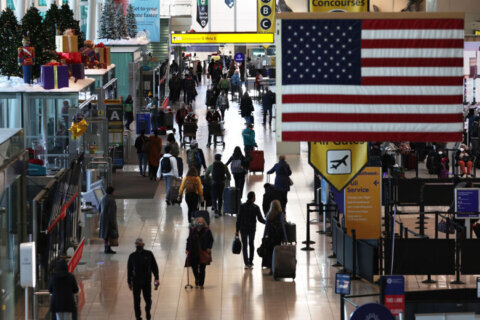WASHINGTON — More than 100 University of Maryland law students are signing up for a new course offered this fall entitled, “Freddie Gray’s Baltimore: Past, Present and Moving Forward.”
The class started with a challenge from the dean of the Carey School of Law to forward the community conversation about Gray’s death and improve the living conditions for residents of West Baltimore, says professor Michael Greenberger.
“We need to have an intelligent discussion of these problems so we can inspire ourselves and our students to learn more about what’s happening and to explore possible solutions,” Greenberger said.
And the eight-week course on the issues surrounding Freddie Gray’s death was born.
The school is offering the course to social work and first-year law students, who traditionally don’t take electives.
“Some people have said, ‘How can you possibly address the social problems of the inner city, a major American city in eight, two-hour classes.’ And the point of this isn’t that this class is the end of a discussion. It’s intended to be the beginning of a discussion,” Greenberger says.
The faculty’s idea for the course is that as it moves forward, it will outline where the school should go with the topic. Options include:
- More issue-intensive courses
- Identifying projects that law school clinics should adopt in the future that will help the community
- Identifying community challenges that would benefit from school volunteers
Maryland Congressman Elijah Cummings along with other community and faculty experts will present to the class during the course. Greenberger says each two-hour class will be devoted to a specific issue.
Greenberger says the issues they’ll cover all relate back to existing laws, addressing segregation in housing, access to health care and community policing, for example.
“Every one of these problems — whether it’s criminal justice issues, education, housing, or health care — starts with either the existence of laws that do work or the existence of laws that don’t work,” he says.
Many second- and third-year law students were in Baltimore when the riots and protesting began in the western part of the city following Gray’s death. It impacted their lives, and that is something their professors say can be used as a teaching tool.
“One of the advantages of this is to make clear to the students what goes on around them in real time has direct bearing to their legal education and it brings legal education some vibrancy that it otherwise doesn’t have,” Greenberger says.
Freddie Gray died a week after he was driven around the city in the back of a police van. An autopsy found he suffered from a “high energy” injury, most likely caused when the van suddenly slowed down.
A grand jury indicted six Baltimore police officers for their roles in Gray’s death. One is charged with second-degree depraved heart murder.








